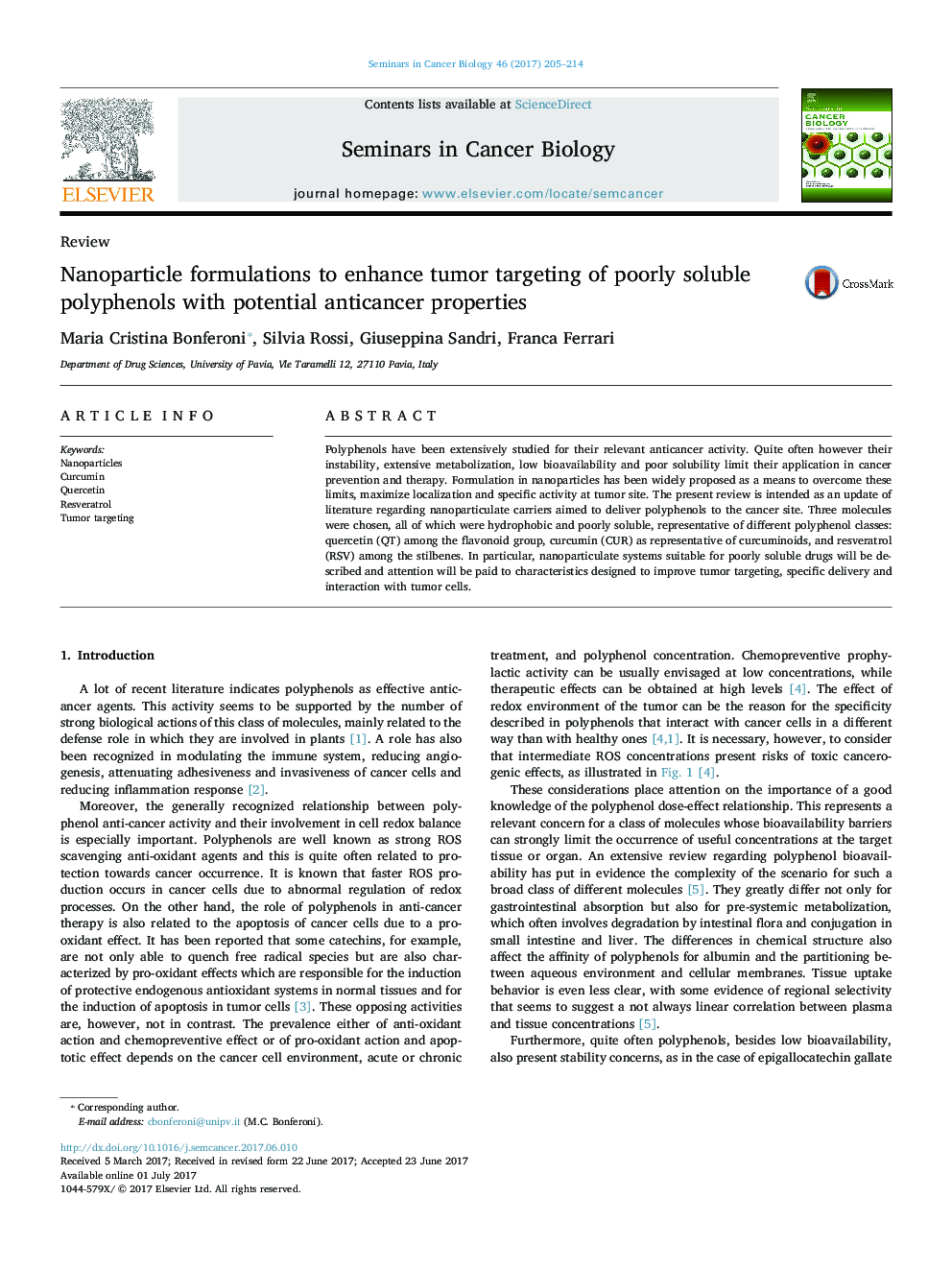| Article ID | Journal | Published Year | Pages | File Type |
|---|---|---|---|---|
| 6481753 | Seminars in Cancer Biology | 2017 | 10 Pages |
Polyphenols have been extensively studied for their relevant anticancer activity. Quite often however their instability, extensive metabolization, low bioavailability and poor solubility limit their application in cancer prevention and therapy. Formulation in nanoparticles has been widely proposed as a means to overcome these limits, maximize localization and specific activity at tumor site. The present review is intended as an update of literature regarding nanoparticulate carriers aimed to deliver polyphenols to the cancer site. Three molecules were chosen, all of which were hydrophobic and poorly soluble, representative of different polyphenol classes: quercetin (QT) among the flavonoid group, curcumin (CUR) as representative of curcuminoids, and resveratrol (RSV) among the stilbenes. In particular, nanoparticulate systems suitable for poorly soluble drugs will be described and attention will be paid to characteristics designed to improve tumor targeting, specific delivery and interaction with tumor cells.
